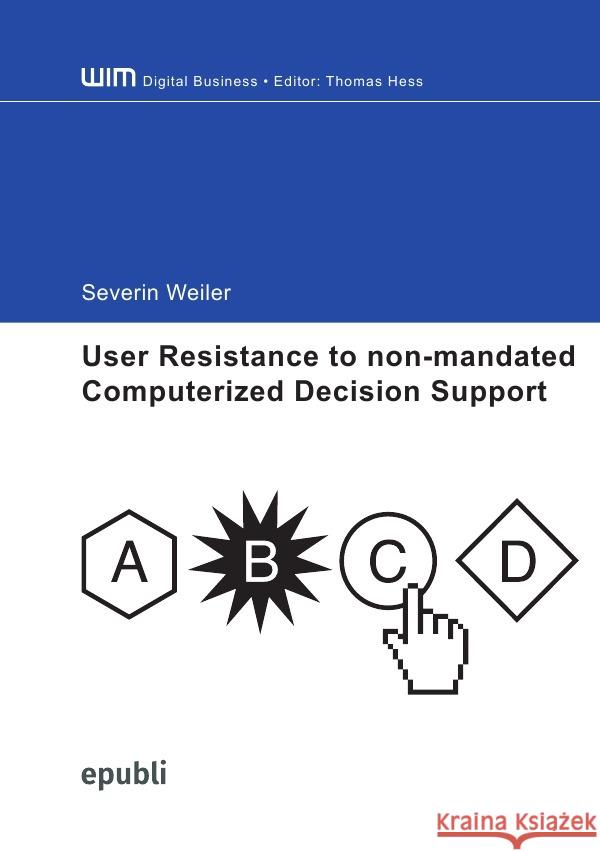User Resistance to non-mandated Computerized Decision Support » książka
User Resistance to non-mandated Computerized Decision Support
ISBN-13: 9783754161135 / Angielski / Miękka / 168 str.
The increasing proliferation of new types of digital products and services (e.g., smartphones or smart home devices) means that individuals' private lives are becoming more and more digitalized. One of the most important aspects of this digitalization of private life is the use of information systems for decision-making (e.g., robo-advisors that support personal finance decisions). Using information systems to make individual decisions makes sense in most cases, but there may be reasons why individuals do not want to use or are not able to use an information system. Since many factors that lead to ineffective or non- usage (i.e., user resistance) are known only from a professional usage context, the factors driving user resistance in the non-mandatory usage context are less explored, leading to a knowledge gap in this area. All DSS providers must be able to understand what might discourage potential users from using a system to ensure sustainable use by all groups. The dissertation will therefore shed light on the factors that drive user resistance in the private lives of individuals across all phases of the user life cycle: (pre-) adoption, (continued) usage, and termination. It also proposes principles that contribute to the successful reduction of user resistance by revealing underlying structural causes and evaluating concrete interventions. All of these proposals have been investigated based on empirical studies of human behavior when interacting with state-of-the-art DSS. This dissertation thus contributes to the theory of individual adoption decisions with DSS and provides insights for practitioners seeking to design and implement DSS.
This book sheds light on the factors driving user resistance in individuals' personal lives across all stages of the user lifecycle and proposes principles for their remediation.











